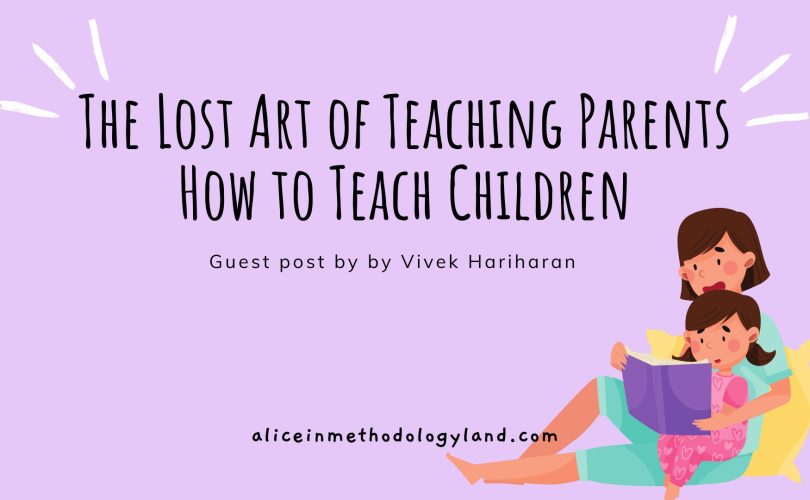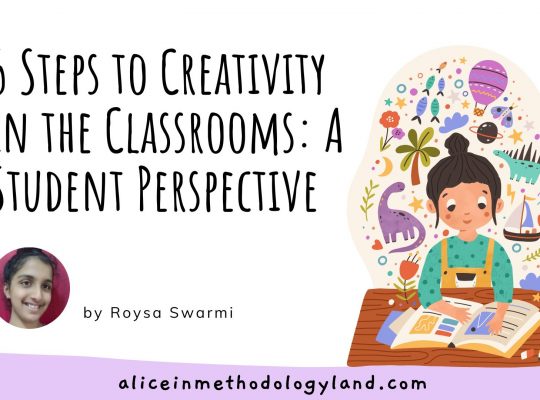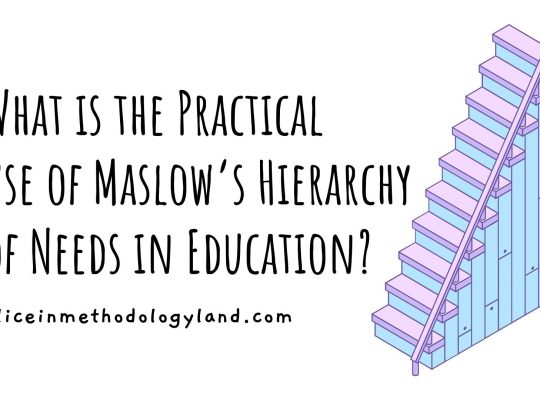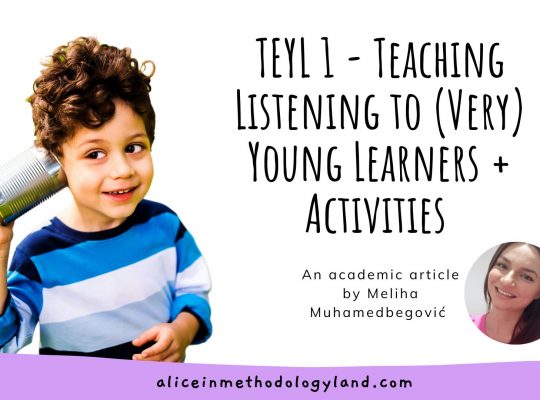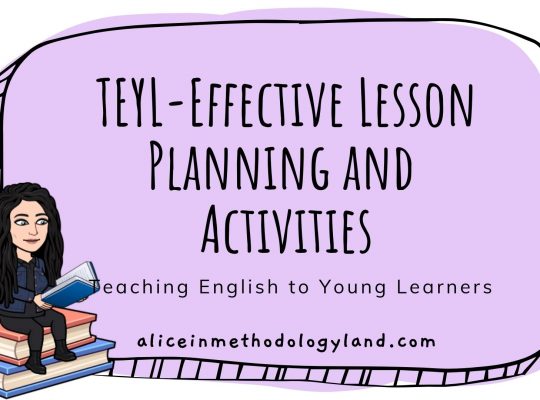Hello, my dear colleagues! Alice here with a new guest post about a topic I am personally passionate about! The article is interesting and gives a fresh perspective you might need if you want to start collaborating with parents more but don’t know where to start.
The article is edited minimally to allow the author to keep their writing voice.
Without further ado, let’s see what Vivek has to say about assisting parents who want to teach their children at home after your classes.
The Lost Art of Teaching Parents How to Teach Children
Whenever we say “education”, the first word that comes into mind is “teacher.” A good teacher can make a student passionate about education. A second and equally important educator for a child is his/her parents.
Two educators influence the future of a child, one who is highly trained and qualified and is backed with years of experience teaching students, and the second one who has an equal impact but with no training or ideas on structured teaching methods. The parent is, unfortunately, the second type in most cases.
Teaching or guiding a parent on how to teach their child is one of the taboo topics in today’s world. Every parent believes, and rightly so, that they know how best to teach their child. While their hearts may be in the right place, sometimes a little guidance goes a long way.
An interesting correlation among parents who are teachers
I am a secondary school teacher and have noticed one correlation among children of most teachers: they tend to be very smart and have a high drive towards education. One might say that it is because they emulate their parents, but I assure you it is not the case. It is simply because teachers know how to make a child interested in studying.
In one of my recent parent-teacher meetings, I gave a small thirty-minute lecture on how to get a child interested in a subject. You can read about them below.
Be the student you wish to teach
- Learn using your child’s books daily and ensure you are proficient. Your child must know that they can rely on any subject they struggle with. They must reach out to you to ask questions since they know you are knowledgeable.
- The moment you gain your child’s trust as a knowledgeable person, you become a second teacher in their eyes.
- A counterargument that parents make is that the child must show interest in studies on their own. While that is a fair argument, it is true only for a fair few students who are academically inclined by themselves. For most students, we must be their guide and study partner on a daily basis.
Learning without fun is boring
Memorizing random facts from books can be tedious, so make learning as much fun as possible.
A few suggestions: Make a small board game with your kid. Perhaps a small quiz show with actual prizes, sound effects, and cheering.
What about learning languages?
- Learning foreign languages (such as French) can be a tough and unnatural process for any child, especially if you don’t speak the language at home.
- To make the process natural, read comics or short stories in French. You can use Dulingo, or Childhood Stories, which are free websites having tons of short stories. Since they are cute stories, the child will be interested and acquire associated knowledge.
- Make it a point to search YouTube or Instagram, and you’ll find a wealth of ideas.
More the merrier
- I make it a point to encourage group study sessions. This makes it learning more fun.
- Another big advantage is that the child builds essential social skills.
Bring the school to you
- Know what your child learns in school every day.
- Keep small snippet tests on a daily basis on what they learned in school. Make it a habit, along with rewards such as a dollar or two. To mix things up and make it fun, ask one of those questions about movies or cartoons.
All in all, the five tips mentioned above will make learning a fun activity, exciting and rewarding. This will also encourage the child to learn on their own and ensure that they gain maximum out of the education system. Happy teaching and happy learning!!
To conclude
What do you think about assisting parents when it comes to teaching their own children at home? Have you ever tried to develop these kind of relationships with your parents? Let us know in the comments!
Vivek Hariharan is a secondary school English teacher from Tamil Nadu, India. He has 19 years of teaching experience and also conducts evening tuition classes for English, Hindi, Tamil, and Sanskrit (regional Indian languages). He owns and runs a free language learning blog called www.childhood-stories.com, which has dual language short stories in multiple languages.
His passion is to start an NGO where he can provide food to a village near his hometown.
Click here to explore Alice’s material website, where ESL materials are forever free!

All the materials except lesson plans and 30+ page interactive activity books will be free FOREVER! Why? Because sharing is caring, and the last couple of years haven’t been kind to all of us.
Don’t forget to leave a review when you download materials! It’s just a minute of your time, and it means a lot to Alice as a material designer.
P.S. The store and the freebie library are not the same thing – the freebie library has some extra materials, like conference presentations and webinar recordings, which are not available in the store.
The subscription link for the store is below the author’s bio in every post.

*Our posts may contain affiliate links, which is one of the ways we can keep operating.

